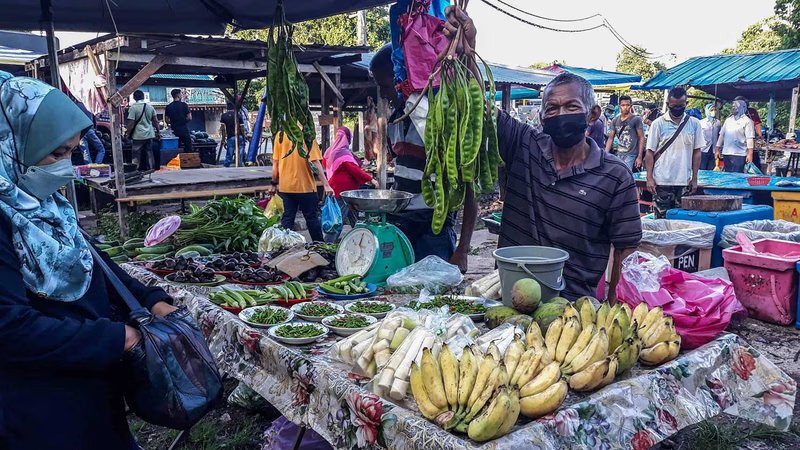
Malaysia has established itself as one of the most open and dynamic economies in Southeast Asia, offering robust opportunities for trade and investment. The country has a diversified economy that spans sectors such as manufacturing, agriculture, and services, with key industries including electronics, automotive, palm oil, and tourism. Its strategic location in Southeast Asia, combined with its well-developed infrastructure and pro-business policies, has made Malaysia a regional hub for trade. The government has also emphasized industrialization and technology advancement, further enhancing the nation`s economic profile.
The banking and financial system in Malaysia is highly regulated and sophisticated, under the supervision of Bank Negara Malaysia, the central bank. The financial sector is well-integrated with global markets and offers a variety of services such as Islamic banking, which has become an important segment due to Malaysia’s large Muslim population. Islamic finance plays a significant role in Malaysia`s economy, with the country being one of the world’s leaders in Islamic banking and sukuk (Islamic bonds). The dual banking system of conventional and Islamic banking in Malaysia operates side by side, catering to both domestic and international clients.
In terms of trade, Malaysia has been an active player in global commerce, maintaining a strong export-oriented economy. The country exports a wide range of products, including electronics, petroleum products, palm oil, and chemicals. China, the United States, Singapore, and Japan are among Malaysia’s key trading partners. However, the country also maintains significant trade relations with Middle Eastern countries, particularly in the energy and agricultural sectors. Malaysia’s halal-certified goods, especially in food, cosmetics, and pharmaceuticals, have strong demand in Middle Eastern markets due to their compliance with Islamic regulations. Additionally, Malaysia imports crude oil and natural gas from countries like Saudi Arabia and the UAE, making energy trade a cornerstone of its economic relations with the Gulf Cooperation Council (GCC) countries.
Economic interactions between Malaysia and countries in the Middle East and West Asia are underpinned by Malaysia`s commitment to Islamic finance and halal industry development. This has fostered close ties with countries like Saudi Arabia, the UAE, and Iran, as these nations are also major players in the Islamic economy. Malaysia has been able to position itself as a bridge between Asia and the Islamic world, leveraging its expertise in Sharia-compliant products and services to strengthen trade relations. As for exports to these regions, palm oil, automotive components, and electronics are common, while imports include oil, petrochemicals, and raw materials.
Overall, Malaysia’s trade and economic policies emphasize openness to international markets, with a focus on strengthening ties with both Western and Islamic economies. Its advantageous geographic location, coupled with a forward-thinking approach to economic management, has made it a focal point for trade and finance in Southeast Asia, especially in sectors like Islamic banking, halal products, and energy. This positions the country as a key trading partner for Middle Eastern and West Asian nations seeking to expand their presence in the Asian market.
-
 Chris Amirtham 3 months ago
Chris Amirtham 3 months ago Malaysia
FMCG products
Malaysia
FMCG products
Trading all kinds of fast moving consumer goods , supplying sugar,buying pet coke,supply men health product,supply of cooking oil , supply of gut heal...Details
In 2025, Malaysia presents a mixed yet intriguing economic and trade profile for international business professionals. The country"s GDP stood at $399. 7 billion in 2023, a slight decrease from $407. 6 billion in 2022, contrasting the global upward trend where the average GDP rose to $883. 7 billion. Notably, Malaysia"s export dependency is evident with exports comprising 68. 58% of GDP, surpassing the global average of 32. 11%.
This underscores Malaysia"s robust trade engagement, albeit with potential vulnerabilities to global demand fluctuations. The industrial sector, contributing 37. 67% to GDP, remains a cornerstone of Malaysia"s economy, outperforming the global average of 29. 45%. Meanwhile, agriculture"s contribution declined to 7. 79%, below the global average of 11. 37%, highlighting a shift towards industrial and service sectors. This transition presents opportunities for businesses focused on industrial innovation and technology-based services.
Malaysia"s inflation rate fluctuated around 2. 49% in 2023, significantly lower than the global rate of 8. 59%, providing a stable pricing environment for investors. However, domestic credit to the private sector stands at 117. 17% of GDP, well above the global average of 67. 07%, suggesting a highly leveraged domestic economy posing potential financial risks. Trade data reveals a decline in merchandise import and export values and volumes in 2023, with import value indices dropping to 90. 5 from 123.
3 in 2022. Similarly, export value indices fell to 88. 8 from 117. 6, reflecting global economic headwinds. Despite these declines, the lower export unit value index of 95. 5 compared to the global average of 95. 03 indicates competitive pricing, which could offer opportunities for cost-effective market entry. For businesses looking to engage with Malaysia, Aritral.
com provides a strategic platform to navigate these economic complexities. With services like AI-Powered Marketing and Global Sales Assistance, companies can efficiently manage market entry strategies and optimize their trade operations in the competitive landscape of Batı Asya and beyond.

